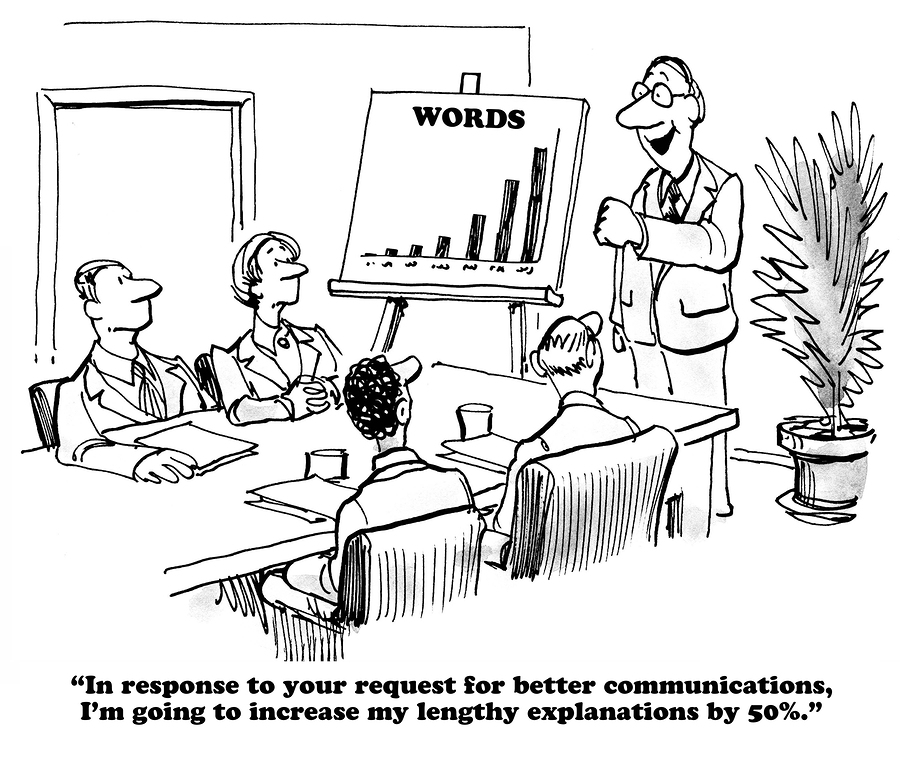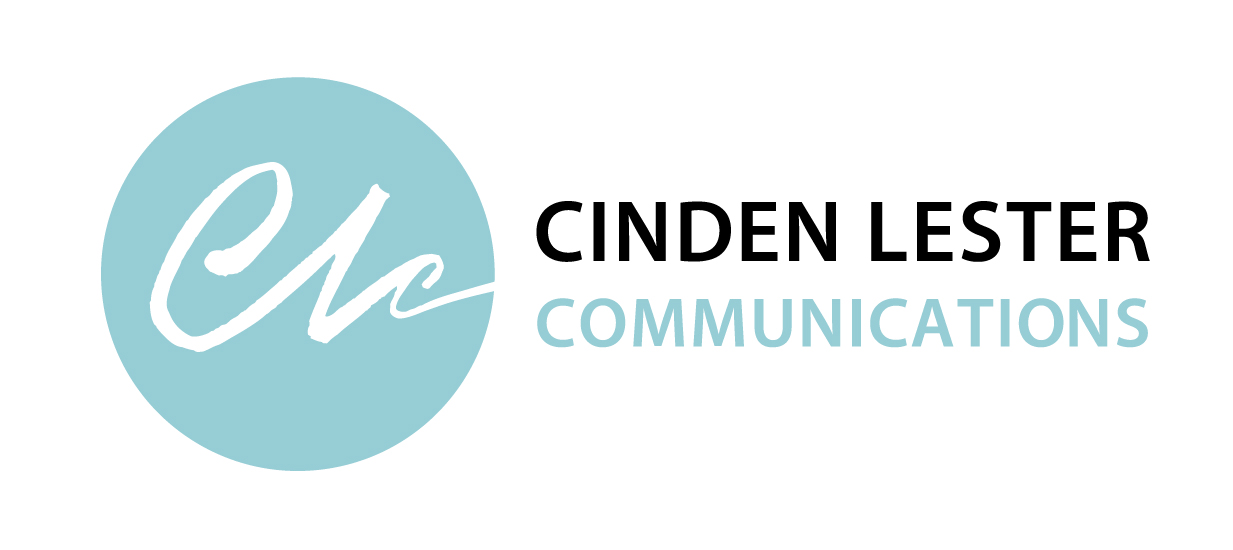
Have you been in this meeting? Do you have colleagues like that?
Makes you groan, right?
We see it often in the workplace.
During mind-numbing presentations, when you find yourself contemplating what’s for dinner instead of listening.
In meetings that get bogged down in long-winded explanations or grandstanding, when you find yourself wishing they would just spell out who needs to do what next to move things along.
In ‘minutes’ that are more like ‘hours’ or ‘briefs’ that are more like ‘longs’, when you feel like you are wading through porridge and not actually taking anything in.
In rambling emails that meander around so much that by the time you get to the end—if you get that far—you still don’t understand the point.
And even in those spontaneous, over-the-
There is a difference between necessary detail and too much information.
So how can we cut to the chase?
Slow down. Think first. Focus on why are you there. What problem are you solving? What do you need to accomplish? What is actually needed as a result of this particular exchange?
Consider your audience. What’s in it for them? What do they need to know?
Prepare. Hillary Clinton summed it up beautifully in her speech at the Al Smith dinner earlier this month, when she said ‘Donald wanted me drug tested before last night’s debate. And look, I gotta tell you, I am so flattered that Donald thought I used some sort of performance enhancer. Now actually, I did: It’s called preparation.’
Trust people. They will ask for more details if they need to know more. You don’t need to convince the room that you are an expert by giving the entire backstory.
Be gracious. Show respect for your audience, and their time.
Be specific. Try writing down your key messages on a post-it note. This forces you to distil your thoughts down to basics to get to the point.
Be positive. Positive rather than negative sentiments are more likely to unite and motivate.
Listen. All effective communication starts with listening. A subtle skill but a valuable one, effective listening improves your communications. It saves you time, reduces misunderstandings, and enhances your ability to negotiate, influence and persuade.
Here’s a nifty quote to keep you on track:
Remember: Communication is the currency of your success. You exchange words and ideas more often than you exchange money. Make your communications as valuable as you possibly can.
| Cinden Lester has more than 25 years’ experience as a professional writer, editor and communications specialist. She worked as a broadcast journalist, in private sector marketing and public relations, and in government communications before establishing her own Canberra-based communications consultancy in 2000.
Contact Cinden if you’d like help with your communications. |

